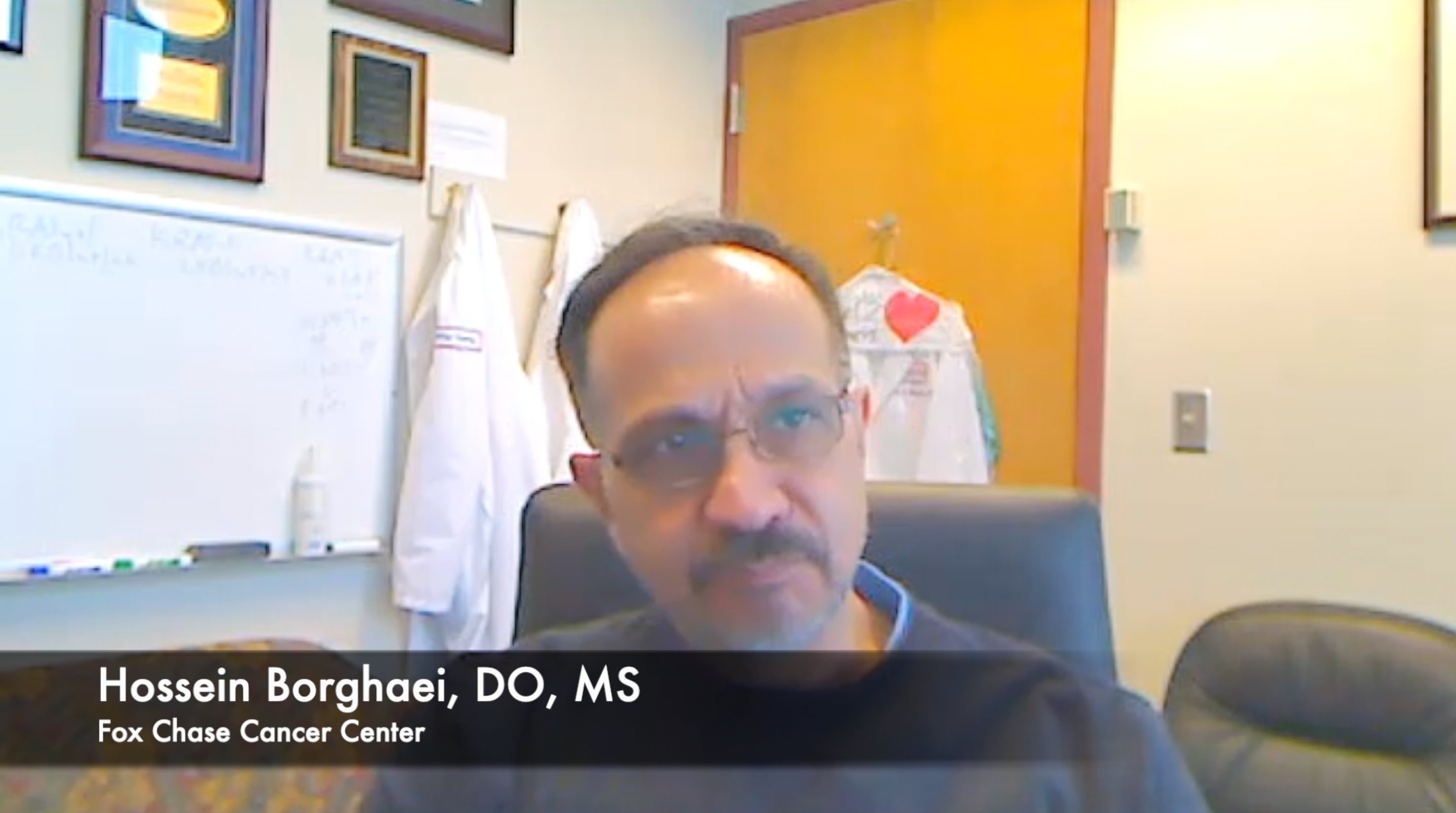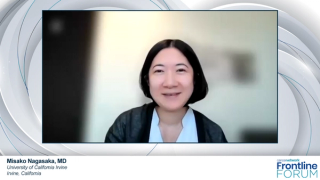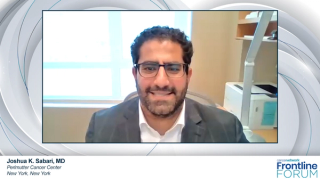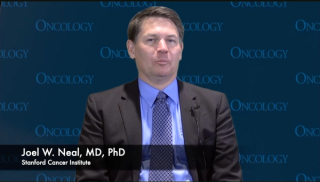
Lung Cancer
Latest News

Latest Videos

CME Content
More News

Despite 5-year survival increasing nationally for patients with lung cancer, patients of color continue to experience poor survival.
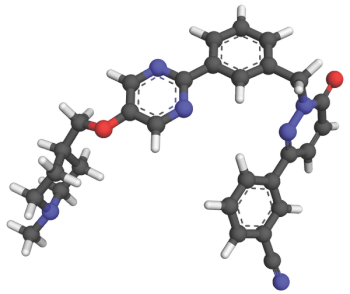
In an interview with ONCOLOGY®, David Hughes PharmD, BCOP, and Jessica Freydman, PharmD, offers a comprehensive review of real-world treatment considerations of tepotinib as therapy for patients with metastatic non–small cell lung cancer that have MET exon14 skipping mutations.

The presence of neuronal autoantibodies in patients with lung cancer, specifically small cell lung cancer and non–small cell lung cancer, appears to be associated with cognitive impairment.
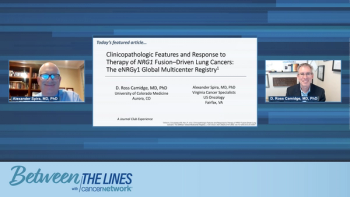
Experts Alexander Spira, MD, PhD, FACP, and D. Ross Camidge, MD, PhD, highlight the importance of global registries before sharing their closing thoughts on NRG1 fusions and the future treatment landscape of lung cancer.

Roy S. Herbst, MD, PhD, shares insight on approaching clinical decision-making for the length of immunotherapy treatment and drug holidays for patients with NSCLC.

An expert in thoracic oncology provides an overview of ctDNA and discusses what ctDNA testing results can indicate about a patient’s likelihood of responding to immunotherapy in NSCLC.

Practical considerations regarding the role of NRG1 fusions in lung cancer management and how that has been informed by the eNRGy1 global registry study.

Roy S. Herbst, MD, PhD, reviews indicators of relapse or progression of disease when monitoring patients on therapy in NSCLC.

Roy S. Herbst, MD, PhD, provides insight on selecting the optimal therapy for non–small-cell lung cancer and shares considerations for the use of combination chemotherapy and immunotherapy.

Experts Alexander Spira, MD, PhD, FACP, and D. Ross Camidge, MD, PhD, share insight and key takeaways from the eNRGy1 global registry study.

CancerNetwork® sat down with Edward B. Garon, MD, at the 2021 World Conference on Lung Cancer to talk about key findings with datopotamab deruxtecan therapy in patients with non–small cell lung cancer and other ongoing trials.

A review of data from the eNRGy1 global registry study, with deference to the efficacy of current therapies and clinicopathologic features.
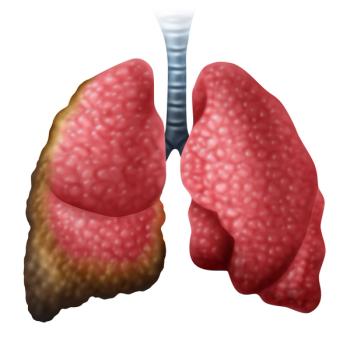
Patients who were treated with ramucirumab plus gemcitabine experienced improved overall survival compared with patients treated with gemcitabine plus placebo.
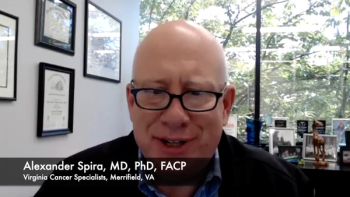
CancerNetwork® sat down with Alexander Spira, MD, PhD, FACP, at the 2021 World Conference on Lung Cancer to talk about COVID-19 and immediate changes that took place during the pandemic.

Findings from the phase 3 CheckMate 743 trial indicated that patients with unresectable malignant pleural mesothelioma derived a continued overall survival benefit after being treated with nivolumab and ipilimumab.

Mobocertinib Plus T-DM1 Combo Shows Efficacy in HER2 Exon 20 Insertion–Mutant Lung Cancer Cell Lines
With the combination of mobocertinib and T-DM1, potent preclinical efficacy was observed in lung cancer cells with HER2 exon 20 insertion mutations.

Patients with resectable pleural mesothelioma underwent safe and effective treatment with the triplet combination of neoadjuvant cisplatin, pemetrexed, and atezolizumab from the ongoing S1619 trial.

CancerNetwork® sat down with Alexander Spira, MD, PhD, FACP, at the 2021 World Conference on Lung Cancer to talk about KRAS as a therapy biomarker in lung cancer.

In the early days of the COVID-19 pandemic, patients with malignant pleural mesothelioma were more likely to be hospitalized or die from COVID-19 versus the overall population.

Patients with non–small cell lung cancer and small-cell lung cancer with bone metastases may benefit from extended dosing with zoledronic acid.

Thoracic oncologists discuss key takeaways and potential translational relevance of seribantumab based on a recent publication by Igor Odintsov, MD, and colleagues.

Experts review a preclinical study of the anti-HER3 monoclonal antibody seribantumab, used in cell lines and mouse models of solid tumors.

“We’re learning to understand how to leverage immunotherapy for a cure.”

Ferdinandos Skoulidis, MD, PhD, MRCP, details what he was most excited to learn about at 2021 ASCO.

The addition of neoadjuvant nivolumab plus platinum-doublet chemotherapy significantly improved pathological complete response rates and showed a greater depth of pathological response compared with chemotherapy alone in patients with resectable non–small cell lung cancer.



